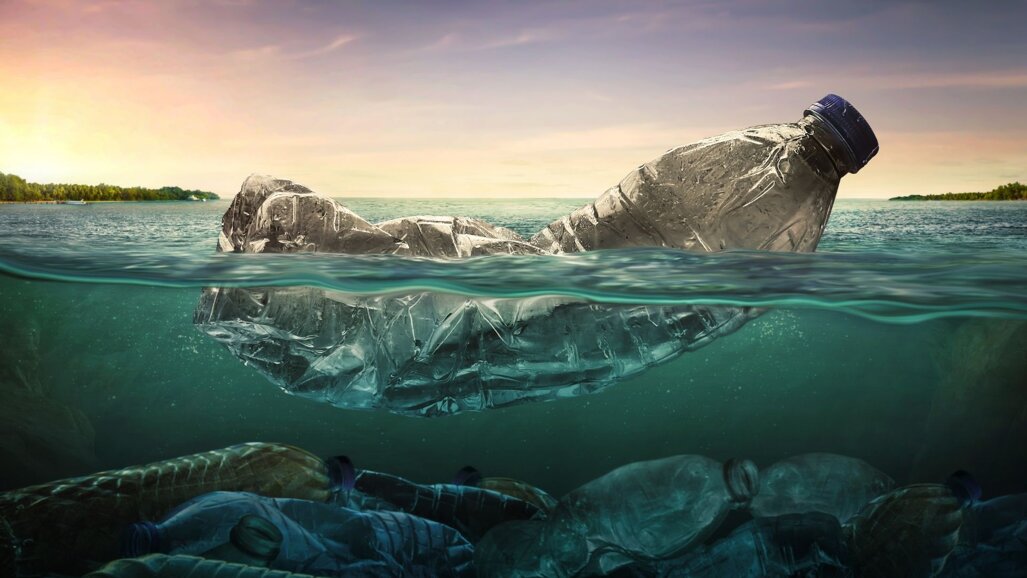Every year, more than 400 million tonnes of plastic are manufactured around the globe. Over 300 million tonnes of plastic end up in landfills, with 11 million tonnes ending up in the oceans.
Plastic pollution is clearly a catastrophe that, if left unaddressed, will have a negative impact on all life on this planet. Before it becomes irreversibly difficult to fight back, this problem must be dealt with on a global scale.
On March 2, 2022, representatives from 175 countries took a step in the right direction by signing a treaty to end plastic pollution.
The resolution includes the entire lifecycle of plastic, including its manufacture, design, and disposal. It is expected to develop over the next two years by 2024. This agreement is a historic milestone in climate action since the Paris Agreement, as it entails multilateral cooperation among many countries to combat a problem that will become a threat if not addressed globally.
As per the resolution, an Intergovernmental Negotiating Committee (INC) will complete a global legally binding agreement by the end of 2024. By the end of 2022, the UN Environment Programme (UNEP) will host a symposium, open to all stakeholders to review best practices in tackling plastic pollution.
After the INC's work is completed, UNEP will convene a diplomatic conference to adopt the agreement and open it for signatures.
“In parallel to negotiations over an international binding agreement, UNEP will work with any willing government and business across the value chain to shift away from single-use plastics, as well as to mobilise private finance and remove barriers to investments in research and in a new circular economy," said Inger Andersen, Executive Director of UNEP.
The historic resolution titled "End Plastic Pollution: Towards an internationally legally binding instrument" was adopted in conclusion to the three-day UNEA-5.2 meeting.
More than 3,400 in-person and 1,500 online participants from 175 UN Member States, including 79 ministers and 17 high-level officials, attended the meeting.
References:
1. Historic day in the campaign to beat plastic pollution. Read full story
2. Nations sign up to end global scourge of plastic pollution. Read full story
3. UN Environment Assembly to Develop Legally Binding. Read full story
4. World Customs Organization. Read full story
Tags:
The prospects of green, eco-friendly, sustainable dental practices are the need of the hour which necessitates the reuse and recycling of dental waste e.g. ...
MELBOURNE, Australia: An increasing number of dental professionals are emphasising the need to move towards eco-friendly dentistry in order to reduce waste,...
CAMBRIDGE, Mass., U.S.: Harvard University’s recent Worldwide Week had the researchers from Harvard School of Dental Medicine (HSDM) drawing the ...
SAN JUAN, Puerto Rico/SPRING, Texas, U.S.: Mercury in dental amalgam contributes to global mercury pollution in multiple ways, such as the illegal diversion...
Live webinar
Wed. 4 March 2026
10:30 pm IST (New Delhi)
Munther Sulieman LDS RCS (Eng) BDS (Lond) MSc PhD
Live webinar
Wed. 4 March 2026
11:30 pm IST (New Delhi)
Live webinar
Thu. 5 March 2026
7:00 am IST (New Delhi)
Lancette VanGuilder BS, RDH, PHEDH, CEAS, FADHA
Live webinar
Fri. 6 March 2026
1:30 pm IST (New Delhi)
Live webinar
Mon. 9 March 2026
10:00 pm IST (New Delhi)
Live webinar
Tue. 10 March 2026
12:30 am IST (New Delhi)
Live webinar
Tue. 10 March 2026
1:30 pm IST (New Delhi)
Assoc. Prof. Aaron Davis, Prof. Sarah Baker



 Austria / Österreich
Austria / Österreich
 Bosnia and Herzegovina / Босна и Херцеговина
Bosnia and Herzegovina / Босна и Херцеговина
 Bulgaria / България
Bulgaria / България
 Croatia / Hrvatska
Croatia / Hrvatska
 Czech Republic & Slovakia / Česká republika & Slovensko
Czech Republic & Slovakia / Česká republika & Slovensko
 France / France
France / France
 Germany / Deutschland
Germany / Deutschland
 Greece / ΕΛΛΑΔΑ
Greece / ΕΛΛΑΔΑ
 Hungary / Hungary
Hungary / Hungary
 Italy / Italia
Italy / Italia
 Netherlands / Nederland
Netherlands / Nederland
 Nordic / Nordic
Nordic / Nordic
 Poland / Polska
Poland / Polska
 Portugal / Portugal
Portugal / Portugal
 Romania & Moldova / România & Moldova
Romania & Moldova / România & Moldova
 Slovenia / Slovenija
Slovenia / Slovenija
 Serbia & Montenegro / Србија и Црна Гора
Serbia & Montenegro / Србија и Црна Гора
 Spain / España
Spain / España
 Switzerland / Schweiz
Switzerland / Schweiz
 Turkey / Türkiye
Turkey / Türkiye
 UK & Ireland / UK & Ireland
UK & Ireland / UK & Ireland
 International / International
International / International
 Brazil / Brasil
Brazil / Brasil
 Canada / Canada
Canada / Canada
 Latin America / Latinoamérica
Latin America / Latinoamérica
 USA / USA
USA / USA
 China / 中国
China / 中国
 Pakistan / Pākistān
Pakistan / Pākistān
 Vietnam / Việt Nam
Vietnam / Việt Nam
 ASEAN / ASEAN
ASEAN / ASEAN
 Israel / מְדִינַת יִשְׂרָאֵל
Israel / מְדִינַת יִשְׂרָאֵל
 Algeria, Morocco & Tunisia / الجزائر والمغرب وتونس
Algeria, Morocco & Tunisia / الجزائر والمغرب وتونس
 Middle East / Middle East
Middle East / Middle East


















































It’s encouraging to see global action finally taking shape to tackle plastic pollution. This treaty could be a game-changer if backed by strong implementation and cooperation. Recycling and proper disposal are key, not just for plastics but for all types of waste—including metals. For those interested in how scrap contributes to the circular economy, you can view more about current recycling trends and market updates.